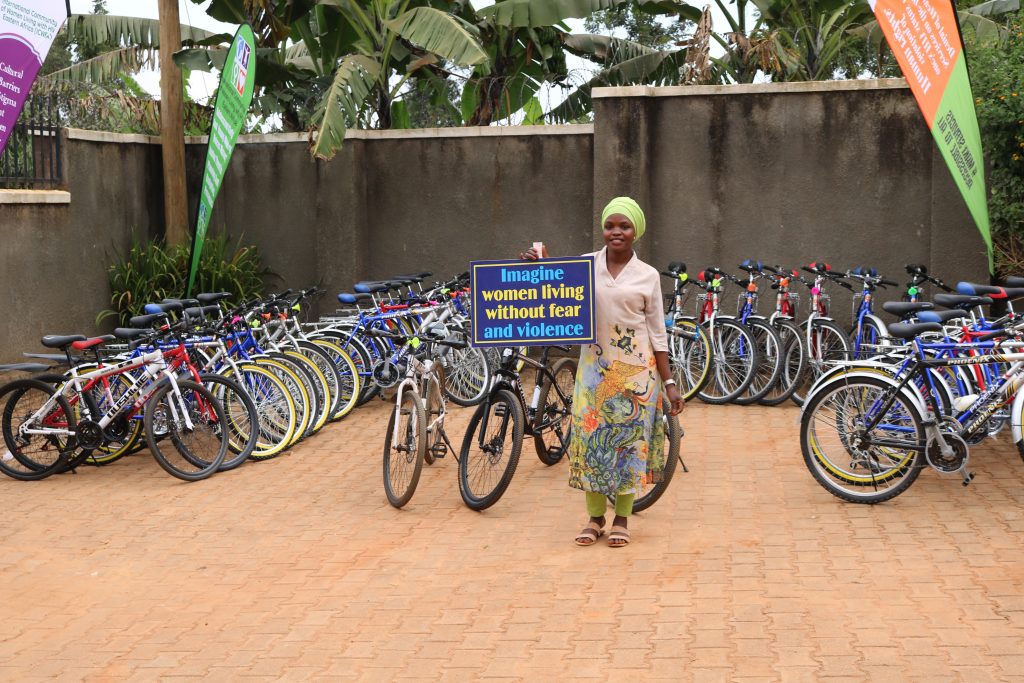
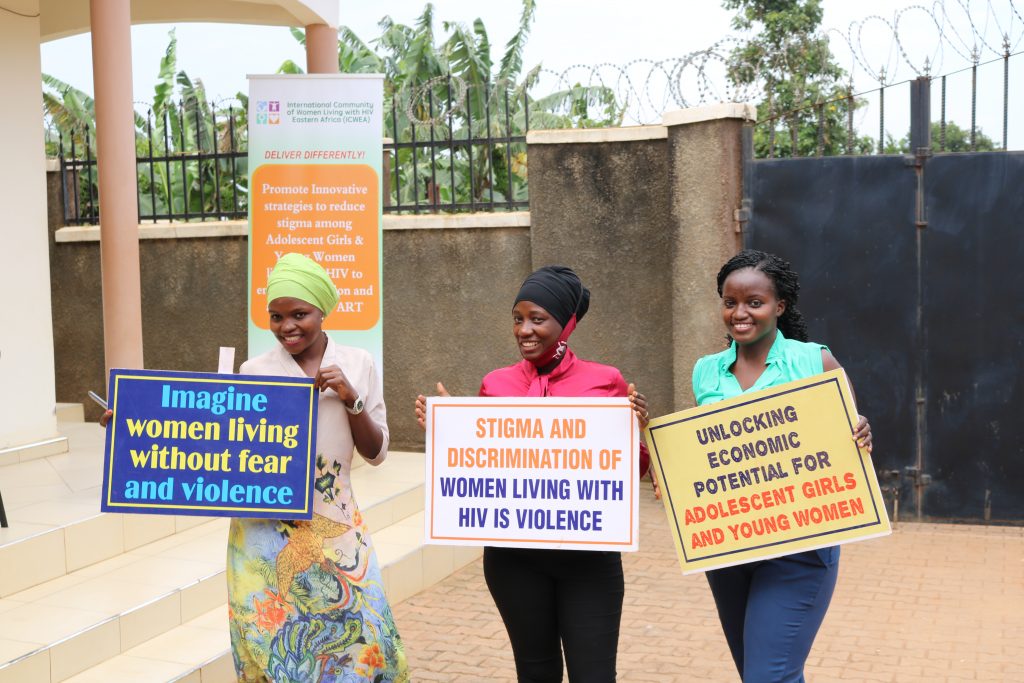
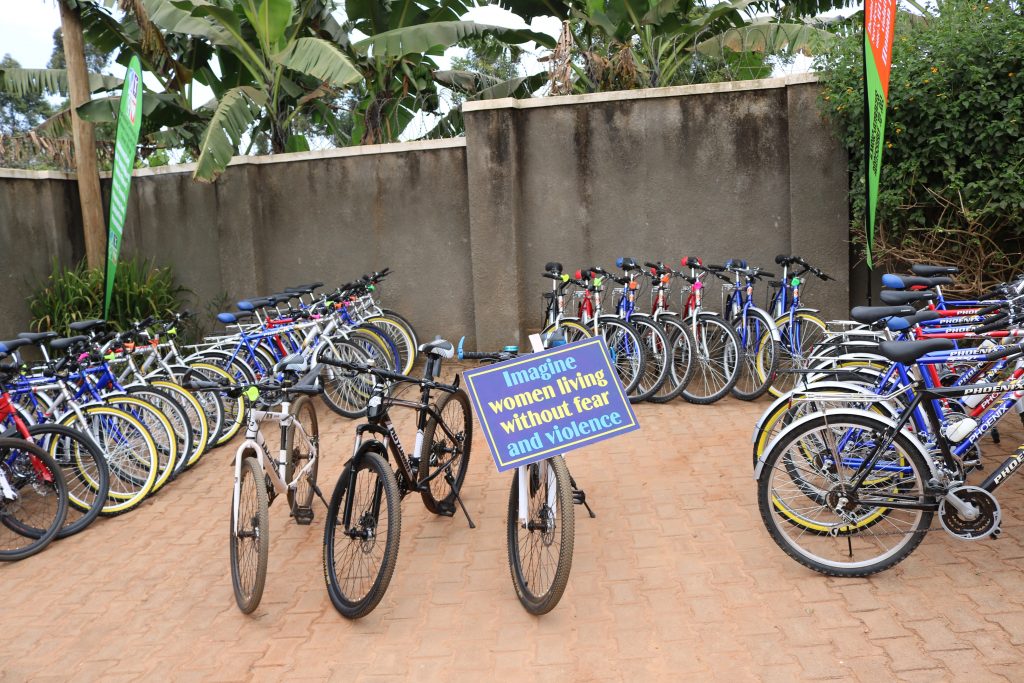
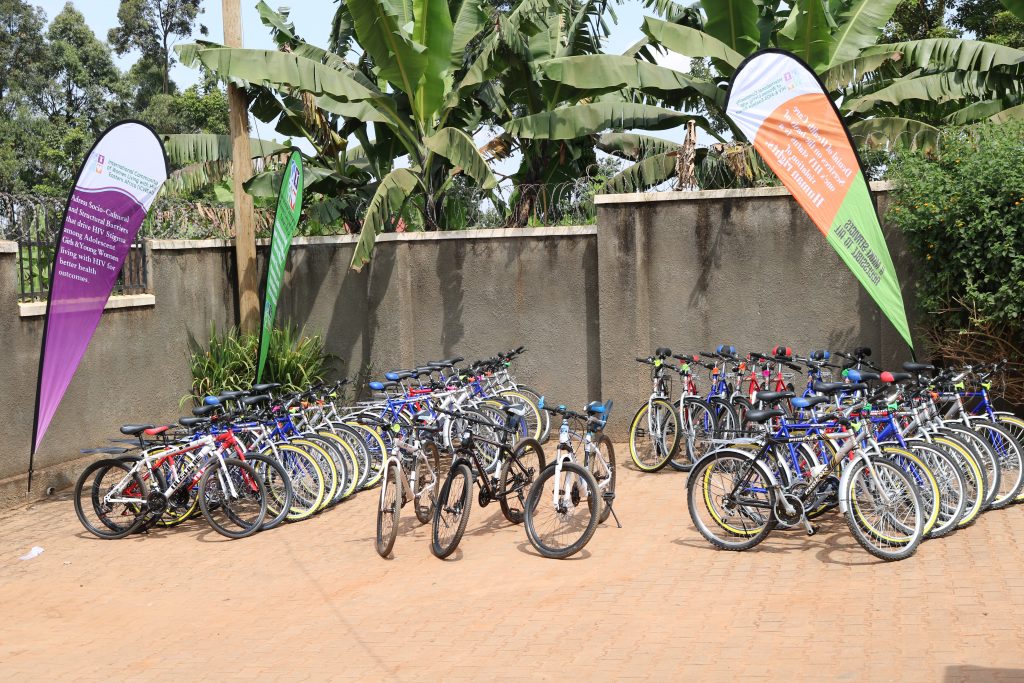
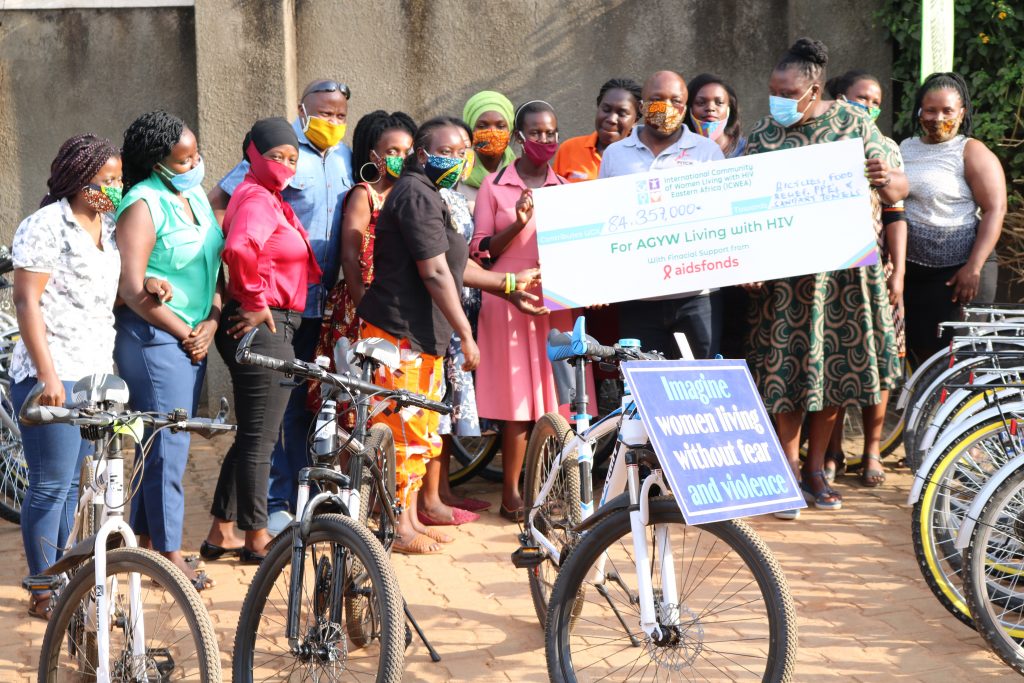
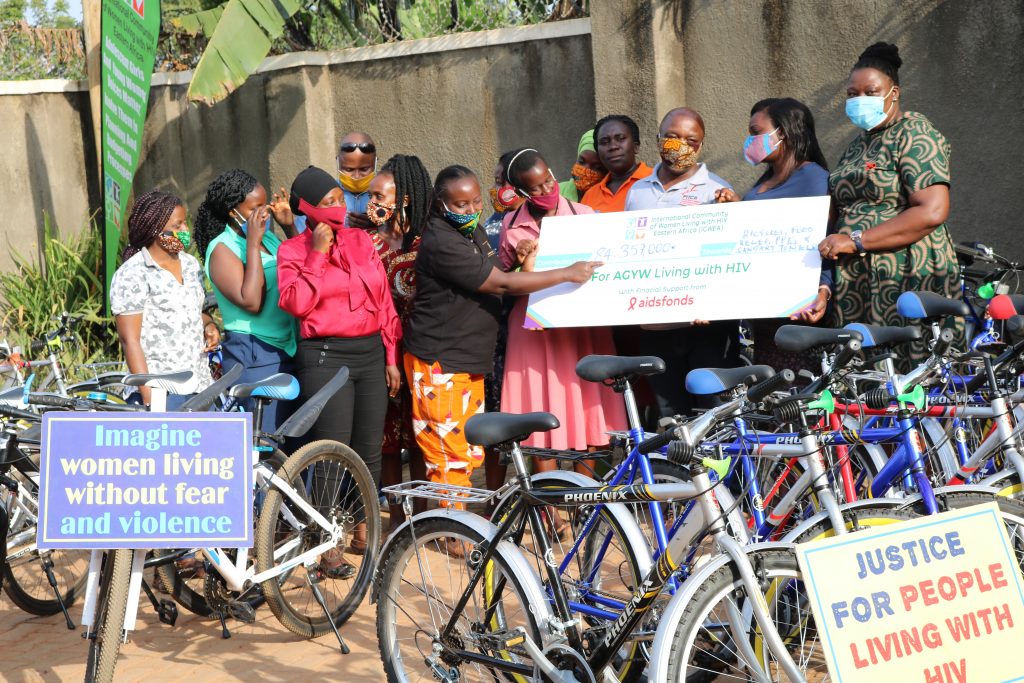
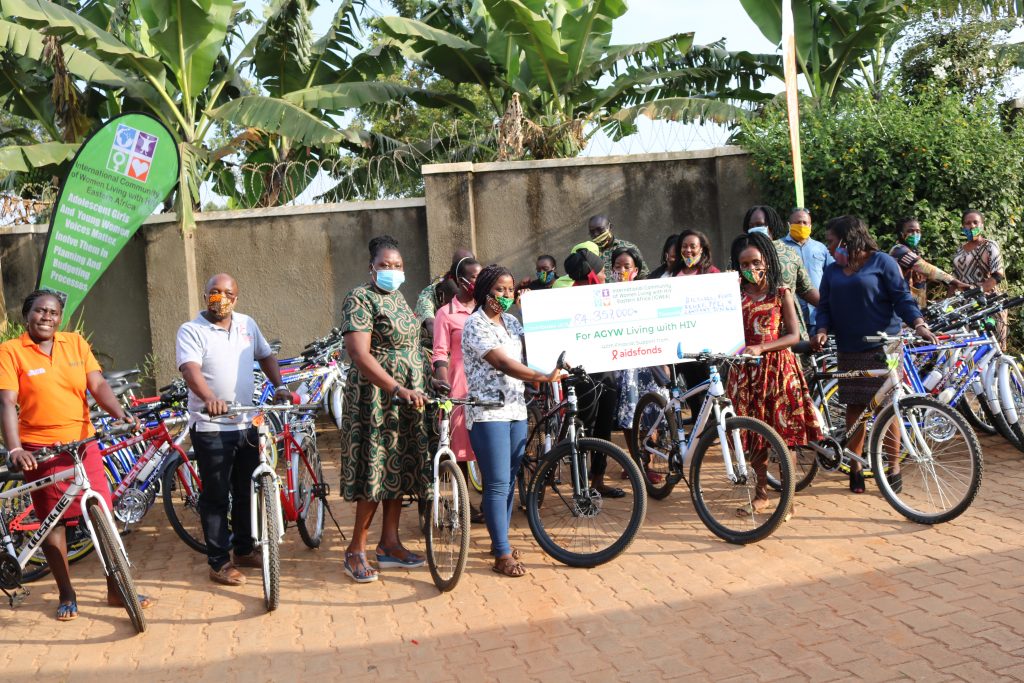
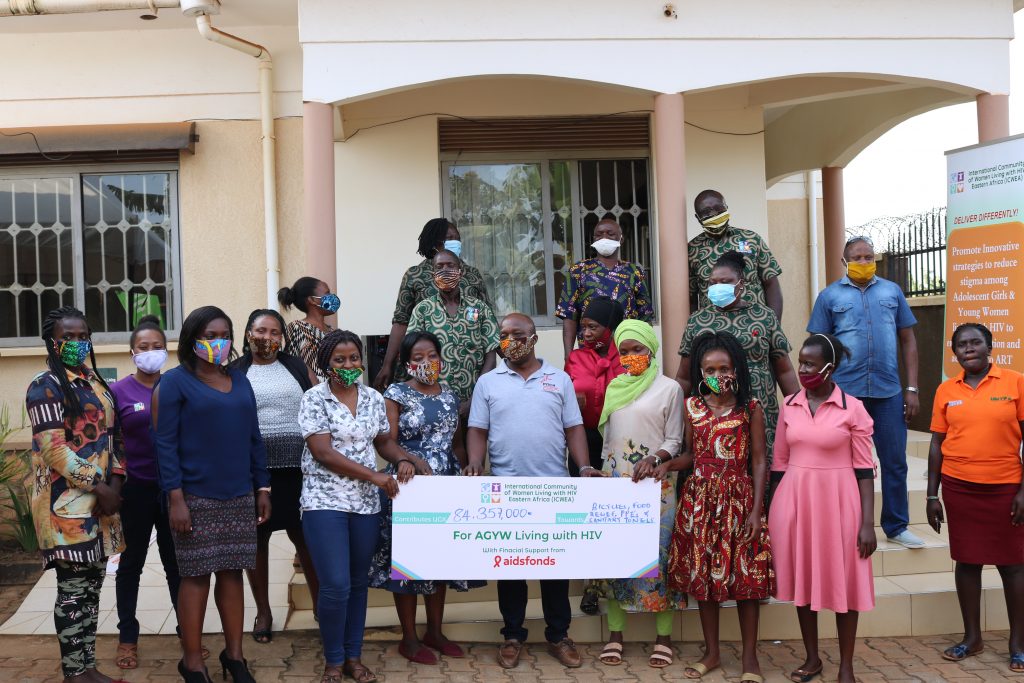
FOR IMMEDIATE RELEASE, 24TH JUNE 2020
SUPPORT ADOLESCENT YOUNG GIRLS & WOMEN TO ACCESS SEXUAL
REPRODUCTIVE HEALTH SERVICES DURING COVID-19
The International Community of Women Living with HIV Eastern Africa
(ICWEA) with financial support from AIDSFONDS has commissioned
COVID-19 Relief Support (in form of food, sanitary towels and soap) for
Adolescent Girls and Young Women (AGYW) Living with HIV in the 5
districts of Wakiso, Kampala, Mukono, Mubende & Busia districts.
ICWEA also commissioned transport facilitation (in form of Bicycles) to
facilitate movement of the Sexual Reproductive Health Rights (SHRH)
Advocates in the same districts.
This activity is aimed at contributing to efforts by the Government of Uganda
and other partners to reduce the negative effects of COVID 19 among
vulnerable communities.
Since 2016, ICWEA has been implementing the Partnership to Inspire,
Transform & Connect the HIV Response (PITCH) project in Uganda in
partnership with 20 SRHR Advocates in the 5 districts.
The PITCH Project is targeting Adolescent Girls and Young Women (AGYW)
Living with HIV because they are among the populations that are at a higher
risk of human rights violations. The key roles and responsibilities of SRHR
Advocates among others are;
Mobilizing their peers for HIV and HIV related services
Following up those who are lost and/or linking newly identified clients
Delivering health commodities including ARVs and other reproductive
commodities
Conducting health talks and education at community and health facility level
Monitoring availability of essential commodities; and where possible
reporting on missing commodities
Counselling their peers on treatment adherence
Developing and implementing mechanisms for fighting human rights
violations like stigma and discrimination
Conducting and/or participating in advocacy activities at local and national
level
COVID-19 VAW/G, A DEVELOPMENT CHALLENGE
The world has seen the deadly pandemic commonly known as COVID-19 (that
started in China in Dec 2019) affect different geographical locations differently.
It has spread to almost all countries causing devastating consequences that
include alarming rates of morbidity and mortality.
The President of Uganda during the outbreak of COVID-19 in the country
outlined directions that Uganda would take in the fight against the virus, among
the directives and guidelines included: suspension of public and private
transport; lock down measures including closing of public places and curfew
beginning at 7:00pm and closing at 06:30 am, these directives have had both
positive and negative consequences on HIV services delivery and posed a threat
to treatment adherence and other likely devastating consequences likely
resistance to regimens, progression of HIV to AIDS and death since some of the
vulnerable communities are not able to “walk” to the far away facilities for
refills and other HIV services. Majority of vulnerable communities like AGYW
use public means to access health facilities and this has further worsened the
already fragile situation where they are being challenged by vices like stigma
and discrimination, food shortages and not able to access the yet necessary
services like SRHR services which are critical for their health and well being.
Furthermore, AGYW have faced several violations including Gender based
Violence (GBV) during this COVID – 19 lock down most of which have gone
unreported.
AGYW living with HIV are among those most affected by the COVID-19
pandemic since most of them have no source of income, they neither have stable
income nor permanent jobs to be salaried and some who were engaged in petty
businesses have faced the wrath of the lock down because their livelihood were
shuttered.
People Living with HIV (PLHIV) on life saving drugs are unable to adhere to
their treatment and benefit from the treatment because of limitations in access to
food.
Many PLHIV have stopped taking their ARVs due to lack of food – which risks
their lives to repeated illness and increasing risks of opportunistic infections and
developments of drug-resistant forms of HIV infections and morbidity.
On the other hand, and due to the COVID 19 prevention interventions; SRHR
Advocates were finding it challenging to move within their communities to
carry out their roles/responsibilities.
ICWEA is therefore facilitating SRHR Advocates with easy transport means so
that they are able conduct their routine activities. We are also providing food
support, SRH commodities (sanitary ware) and other hygiene items like soap.
CALL TO GOVERNMENT, NATIONAL AND DISTRICT
TASK FORCES.
We are calling upon the Government, national and district task forces and other
development partners to observe the following as they deliver social services
and other interventions to control and/or prevent COVID-19:
Observe and use human rights-based approaches during service delivery
Pay special attention to the needs and priorities of vulnerable communities
Involve vulnerable communities in the planning and implementation of
COVID 19 control and prevention
Urgently address human rights violations including Gender Based Violations
Contacts
Lillian Mworeko
Executive Director
+256392947313
lmworeko@icwea. org
Twitter: @ICWEastAfrica
Facebook: www. Facebook.com/ICWEasternAfrica.
Website: www.icwea.org



